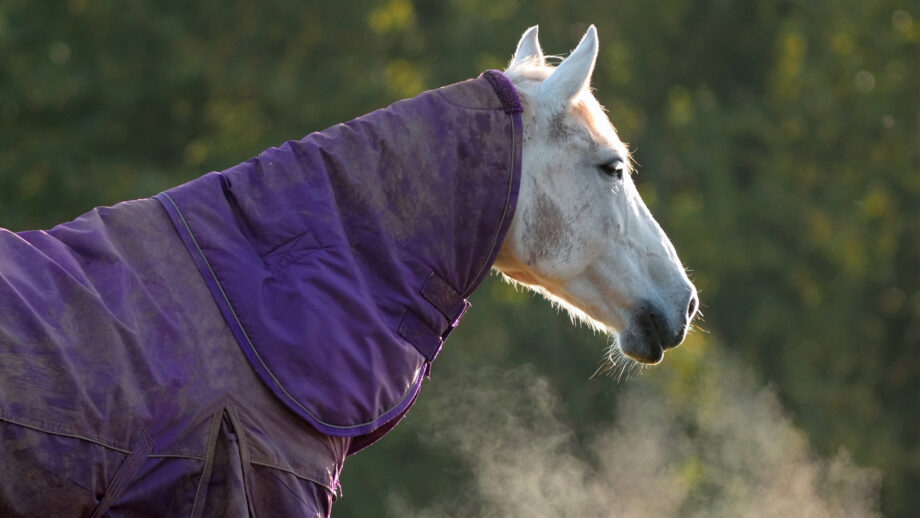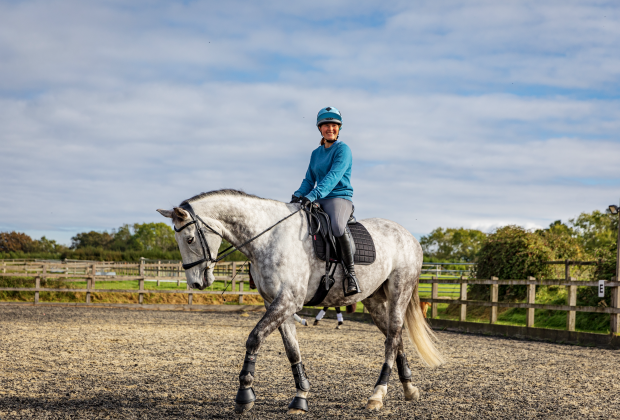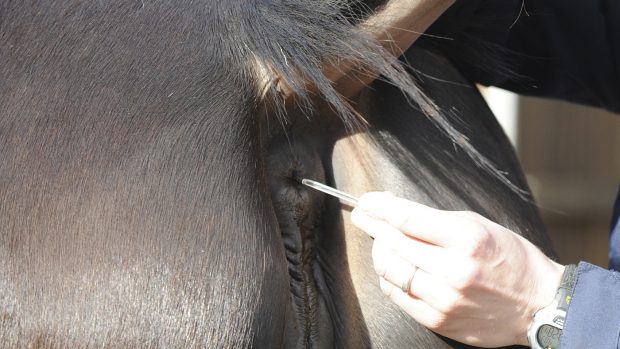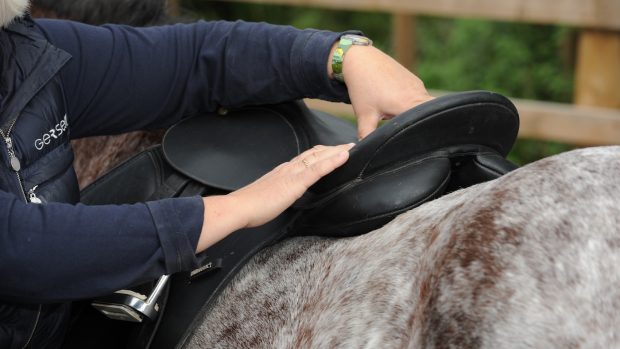Horses can develop forms of depression, just like people. Equine vet Gil Riley MRCVS explains some common signs of depression in horses that owners should keep an eye out for, some of which will be similar to symptoms of depression in humans.
1. A lack of mobility
The horse often faces the back wall of the stable. His eyes are open, but dull, unfocussed and staring straight ahead with a prolonged period between each blink. His head is lowered and ears immobile with the neck stretched (open jaw-neck angle) and at the same level as the back. This is described as a ‘withdrawn’ posture and differs markedly from that of a horse observant of his surroundings, whose neck is held higher and whose ears move inquisitively. It also differs from the posture of a resting horse who relaxes his muscles, often rests one hindleg, rotates ears laterally, allows eyelids and lips to droop, and holds his neck such that it slopes lower and rounder.
2. Indifferent and unresponsive to humans and other stimuli in their home environment
This sign was demonstrated most emphatically by a French study performed at the Universite de Rennes. A group of horses exhibiting the withdrawn stance were exposed sequentially to a series of five unusual sounds that they would not have encountered before (a new stimulus in their home environment.) By way of contrast, a group of ‘normal’ horses (horses not exhibiting the ‘withdrawn’ posture) were similarly exposed to the sounds as a control group. Each day, each horse heard one of the sounds, played for three seconds from a speaker next to his stable, and their reaction was videotaped. The sounds were rotated daily until all the horses had heard all of the sounds. It was shown that the withdrawn horses were significantly less likely to pay attention to the noises, with only around half of them reacting (pricking their ears, lifting their head or some other sign of attention) compared to 90% of the normal horse group. In addition, over the five-day course of the study, the control horses showed habituation to the unusual noises while the reaction of the withdrawn horses did not change significantly. These findings indicated that the withdrawn horses had undergone a ‘cognitive shift’, that they were so physically or psychologically stressed that they had developed ‘sensory inattention’ (‘tuned out’ or switched off from their surroundings.) While some of the control horses did take longer to react to the unusual sounds, this was believed to be a consequence of them simply being calmer, distinct from the withdrawn group in which many of the horses did not react at all on the first day.
3. Loss of appetite
Depression causes a horse to lose its appetite. This can result in unhealthy weight loss, which could in turn bring about other health conditions.
4. Stereotypies (vices)
Symptoms of depression in horses also include cribbing, weaving or other destructive behaviours which represent an abnormal mental state.
5. Lack of sleep
6. Unwillingness to work
Or no longer taking pleasure in work they used to enjoy. This is especially important when considering rider and horse safety. A withdrawn horse might not react appropriately to potentially dangerous situations. If their attention is elsewhere while riding or driving, it could be dangerous for the rider and the horse.
7. Increased fear, anxiety, or spookiness
A study published this year by The University of Edinburgh found that 95% of equine vets reported working with difficult horses on at least a monthly basis, resulting in 81% of them sustaining at least one injury in the past five years.
8. Reduced blood cortisol levels
The study at the Universite de Rennes identified that depressed horses had a lower blood cortisol level than normal horses. Cortisol is the stress hormone of the body and reduced levels are found in human sufferers of conditions such as post-traumatic stress disorder and post-viral fatigue. While we are a long way from the blood cortisol level being used as a reliable marker for depression in a horse, the authors suggested a low reading implied that horses exposed to stress-inducing management conditions suffer a “profound disturbance of the physiological system.”
9. Avoidance of other horses
Separating themselves from the herd or failing to react to other horses in their environment.
Could my horse’s depression be a seasonal problem?
If Seasonal Affective Disorder (SAD) is a possible cause, then increasing light in the stable should be considered. A study was performed at Nottingham Trent University where trial horses were put under an hour of high intensity broad spectrum light every day for six weeks. Their behaviours regarding feeding, sleep patterns and attitude to being handled and ridden were compared to a group of horses that had not received the therapy. The untreated horses were noted to be sleeping longer, lazier at ridden exercise and grumpier.
Further reading: Investigating attentional processes in depressive-like domestic horses (Equus caballus)
You might also be interested in:

Which rug should I put on my horse? H&H’s helpful guide to help you decide

How to help prevent your horse from losing a shoe

Winter hoof care tips: simple steps to help maintain healthy hooves
Ricky Farr MRCVS gives some helpful tips on how to keep your horse’s hooves healthy through the winter with some

Subscribe to Horse & Hound magazine today – and enjoy unlimited website access all year round
Horse & Hound magazine, out every Thursday, is packed with all the latest news and reports, as well as interviews, specials, nostalgia, vet and training advice. Find how you can enjoy the magazine delivered to your door every week, plus options to upgrade your subscription to access our online service that brings you breaking news and reports as well as other benefits.




